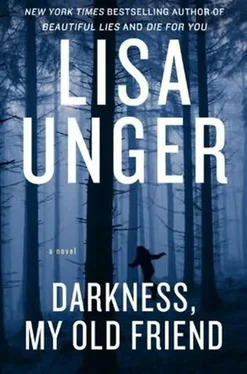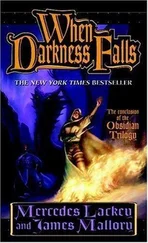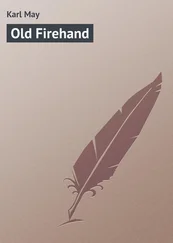Alfred was a high-school math teacher; he never made much. But for the way they lived, it always seemed like enough. It wasn’t like it is now, where everyone needs to live like a celebrity to be happy. They were just happy; they didn’t know another way to be. She didn’t have any angst about staying home with her kids. That’s what her mother had done. That’s what she wanted to do. Why would she want to punch a clock and sell her time to a company while someone else took care of her daughters? What was so hard about making meals and cleaning house, coloring and singing the ABCs? What was so great about having a career? She never understood all that. The mommy wars? How sad.
“Alfie, did you remember your lunch?”
“Yes, yes. Got it.” A quick wave. She could tell by his wrinkled brow that his mind was already on the day ahead. The girls were already in the car. Emily had her headphones on. Amanda had her nose in a book.
This is what she remembered about that morning. Those words hanging on the air that was cool but with an edge of warmth that promises spring. She remembered how he looked back up at her with a smile, embarrassed that his words might have seemed short to anyone but she who knew him so well.
“Thank you, darling,” he said. “Yes, I have it.”
“That’s better.”
Alfie. Al to everyone else except to Eloise and her mother-in-law, Ruth. They alone still called him Alfie, remembering the shy, nerdy boy who was always kind and never picked on by the jocks because there was something to him, wasn’t there? Something tough beneath those wire-rimmed glasses. Instead they came to ask for help with their algebra.
And it should have been that, the three of them, her husband and two daughters, off to school. Except.
“Oh, no! I need the car,” she called.
“What?” he said. “Why?”
“I have my appointment later this morning. Darn it all. Just give me a minute.”
They only ever had the one car. He worked fifteen minutes from the house. If she needed the car, she brought him to work, the kids to school, and picked them all up again at the end of the day. She did that maybe a couple times a week, so she could do the shopping or run errands. Or go to the doctor.
“Hurry, Eloise. I have papers to grade this morning before class.”
Ten minutes changed her life. She was tempted to say destroyed, ended, ruined, wasted… something like that. But no, it wasn’t so. Alfie’s life ended. Emily’s life ended. Her adored and adoring husband. Her pretty, smart, quirky, funny, kind little girl who always smiled even when she was sad. Eloise was left behind with Amanda, her serious, loving, introverted, brilliantly creative younger daughter. The two of them least likely to get back up and live again somehow were left behind to do just that. The two of them who were most likely to want to die for the loss of the others were forced to go on together.
Because Eloise fretted and Alfie laughed it all off. Emily acted out and slept like a log while Amanda quietly worried, lying awake in bed, tiptoeing into the master bedroom to sleep beside her father. It shouldn’t have been the two of them left to hold each other up. But it was. After the accident the world went quietly gray. Eloise didn’t know how to put the color back in the sky, not for herself, not even for Amanda.
Eloise was in a coma for six weeks, while her husband and daughter both passed and were buried without her. Amanda, who suffered the least of the physical injuries, was cared for by her grandmother, Ruth. When Eloise thought about those six weeks, she hated herself. How could she just lie there, leaving Emily and Alfie to pass without her by their sides? Leaving Amanda all alone with that terrible fear and crushing grief? How could she? It was an unforgivable negligence of duty.
And then, a few months later, the visions came. Amanda was back in school, doing as well as could be expected. Eloise had taken on some cleaning and baby-sitting jobs offered by neighbors. At first they were pity jobs; Eloise knew that. But then her reputation grew-she was good with children, an excellent housekeeper. They would make ends meet fairly well, with Alfie’s life insurance, his pension, and the money they’d already managed to save. Eloise always made sure she was home when Amanda got home, that dinner was in the oven and all the lights in the house were on. It was the least she could do. She knew that it was not nearly enough.
It was one of those afternoons, while she waited for the bus to pull up, that she was first struck. That’s what it felt like, a blow to the head. A blow that changed the channel she was receiving, from what was around her to something that was elsewhere-another place, another time, another person .
Labored, panicked breathing. Dark. The sound of dripping water echoing off stone. And then a horrible keening scream, Help, help, help me! It was a loop, replaying over and over. She didn’t know how long.
She became conscious again to find herself on the floor with Amanda hovering over her, pale and terrified.
“Mom,” said Amanda. Her voice was just a whisper. “Mom.”
Eloise struggled up, struggled to shake off her disorientation. This was the last thing Amanda needed right now.
“Honey, I’m fine. I skipped lunch. I must have fainted.” Eloise tried for a self-deprecating smile, but she couldn’t shake the vision or the fear. What the hell had just happened to her?
Amanda stared at Eloise with wide eyes, her carbon copy as Alfie always said. But no, she wasn’t that. She was more beautiful, smarter, and kinder than Eloise could ever have dreamed of being. In her slender, pale face, in her stormy eyes, Eloise saw all their grief and sadness, all their terrible loss. And something else: a simmering anger, a growing rage. Amanda was too young to know how hard and unfair the world could be; she’d suffered too much pain for her fifteen years. And something inside, the child who’d been asked to grow up too fast, was furious.
“I’m okay. Sweetie. Look at me. I’m fine.”
Outside, the wind chimes were wild. She heard the cooing of the mourning doves that had come to live in the eaves. She pulled Amanda in close and clung to her, feeling her daughter’s arms wrap around her middle and hold on tight.
What had happened to her? Most anyone would question her sanity, would immediately imagine posttraumatic stress disorder or some kind of psychotic break. And, of course, she had considered these things. (The grim diagnoses, the candy-colored rainbow of pills, would all come later.) But even then she knew. She knew she hadn’t lost her mind. She was Alice, slipping down the rabbit hole into some other world, a place she’d never even imagined until she was there.
Now she had the Internet, the ubiquitous web of information that linked the whole universe together. Now, when she had the visions, she sat down at her computer and started typing in key words like missing women or missing girl . If she’d heard a particular bird chirping in her vision or saw a certain type of plant or leaf, heard an accent or a different language, she’d use that. But that took years, decades of instruction and practice to be so mindful in her episodes. At first she was just reeling, terrified, taking on the emotion, the terror. She couldn’t think straight; it took hours to get her equilibrium back. Back then she had to wait for the news at six and eleven, hope that whatever she’d seen had made it onto the national broadcast. Back then there wasn’t even cable, no twenty-four-hour world news channels at the click of a remote.
She couldn’t shake it that first night. And after Amanda went to bed, she turned on the news and watched. She couldn’t have said why she did this. But she knew she must. And there it was, a missing girl in Pennsylvania. There was a giant manhunt, a weeping mother begging anyone with information to come forward. She’s in a well. If you don’t call now, it will be too late. She’s dehydrated and cold. She won’t survive the night . It wasn’t a voice-and it was a voice. It was a knowledge that leaked into her consciousness from the air. It had a particular sound-and it didn’t.
Читать дальше












